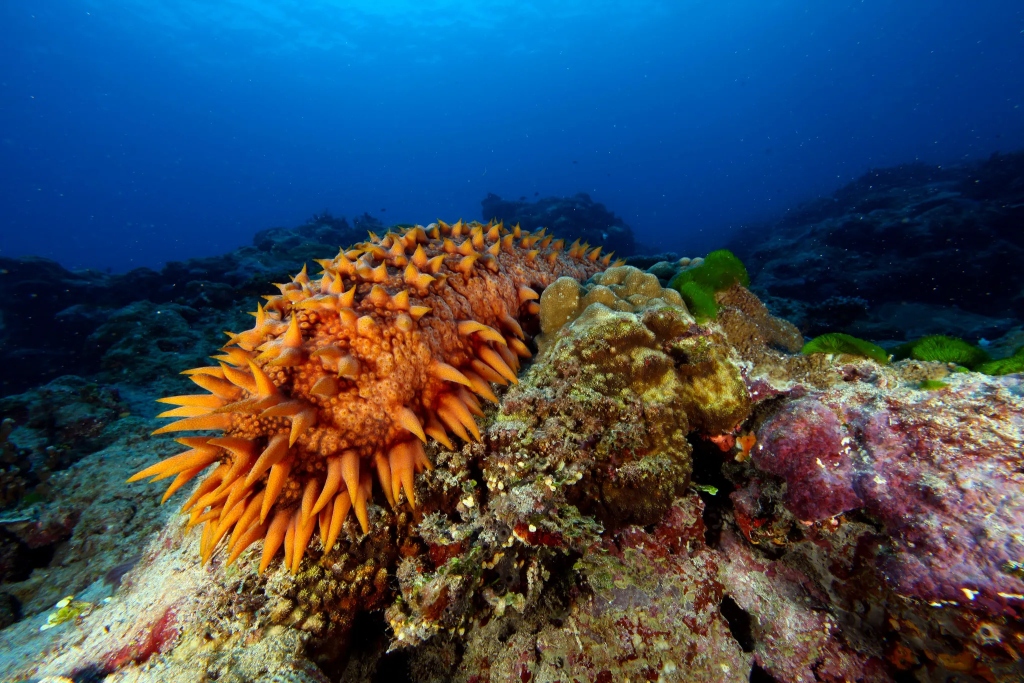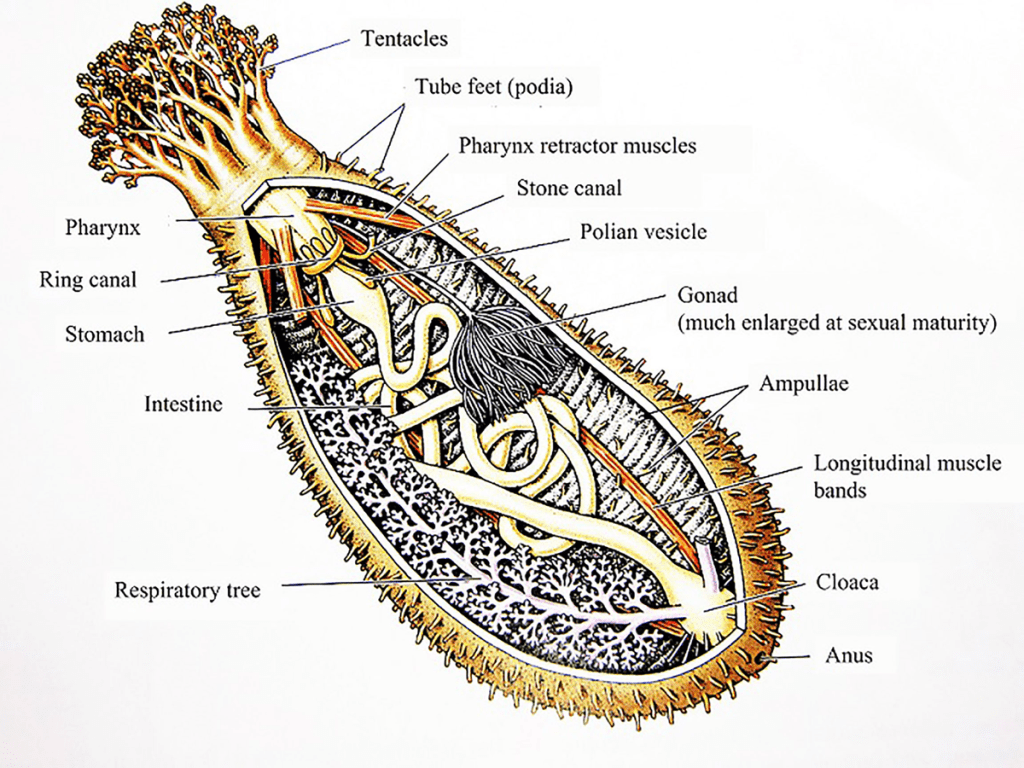What if one of the ocean’s most unassuming creatures held the key to slowing down cancer? Sounds like something out of science fiction, right? But according to a 2025 study from the University of Mississippi, that’s exactly what researchers uncovered. Scientists discovered that a compound extracted from sea cucumbers—specifically the species Holothuria floridana—can actually block a cancer-driving enzyme. It’s not just a breakthrough—it’s a potential game-changer.
The Power Behind Sea Cucumbers

While sea cucumbers might look like ocean floor slugs, they’ve long been treasured in traditional medicine, particularly in Asia. But now, modern science is catching up. In this study, researchers zoomed in on a compound called fucosylated chondroitin sulfate—a mouthful, but a molecule with incredible power.
This compound is a type of sugar, but not the kind you sprinkle in your coffee. It’s a marine-derived polysaccharide with a unique structure that allows it to interfere with biological processes inside the body—specifically, the processes that let cancer spread and hide.
How Does It Work? Blocking the Sulf-2 Enzyme
The real villain in this cancer-fighting story is an enzyme known as Sulf-2. This enzyme plays a huge role in helping cancer cells metastasize and evade the immune system. Essentially, Sulf-2 alters the “sugar coats” (or glycans) on the surface of cancer cells, allowing them to change shape, spread, and go unnoticed.
But here’s where sea cucumber sugar comes in: it blocks Sulf-2’s function, stopping cancer cells from changing their coats and running wild through the body. Even more impressive? It does this without triggering harmful side effects, like the dangerous blood clotting that often comes with carbohydrate-based therapies.
Video : ‘Miracle’ sea cucumber used to treat cancer
From Lab Bench to Real Possibility
This wasn’t just theoretical. The scientists behind the study used a powerful combo of lab experiments and computational modeling. In the lab, they watched as the sea cucumber sugar disrupted Sulf-2 activity. On the computer, they simulated the compound binding to the enzyme and halting its function. It’s rare to see a natural compound perform so well both in vitro and in silico.
That dual validation gives this discovery real legs. It’s not just something that might work in theory—it’s something researchers can build on to develop future treatments.
Why This Matters for the Future of Cancer Therapy
Let’s be honest: most cancer treatments today come with brutal side effects. Chemo, radiation, and even some newer immunotherapies can leave patients weak, sick, and vulnerable. That’s why natural compounds that work without causing damage are so important.
This sea cucumber sugar offers a gentle but powerful new path. It shows that we can look beyond synthetic chemicals and lab-created molecules—and instead, turn to the natural world for help.
And it’s not just about sea cucumbers. This discovery opens the door to deeper exploration of marine life as a pharmaceutical goldmine. What other ocean creatures are quietly holding the cure to human diseases?
Common Misconceptions: It’s Not Just a Folk Remedy

When people hear “sea cucumber,” they might dismiss the idea as alternative medicine or ancient superstition. But this research is backed by hard science. It’s the result of rigorous analysis, structural modeling, and modern lab testing.
This isn’t about drinking herbal tea and hoping for the best. It’s about using nature’s molecules with surgical precision—targeting the exact mechanisms that allow cancer to grow and spread.
What Makes This Discovery So Unique?
- Targeted Action: It blocks Sulf-2, a key enzyme, without harming healthy tissues.
- No Side Effects: Unlike many sugar-based drugs, it doesn’t increase blood clot risk.
- Natural Origin: It’s a marine compound—no synthetic chemicals or artificial processes.
- Therapeutic Potential: Offers a foundation for a new class of anti-cancer drugs.
What’s Next for Sea Cucumber-Based Medicine?
The researchers didn’t stop at this single study. This discovery has opened up an entire area of exploration. Clinical trials are the logical next step—but even before that, pharmaceutical companies and marine biologists are collaborating to see how this compound can be harvested, refined, and tested for other diseases too.
Imagine a future where ocean creatures become frontline defenders in our fight against cancer. With innovations like this, that future might not be so far off.
A Lesson from the Sea
Sometimes the answers to our toughest problems are hidden in plain sight—or in this case, buried in the sand at the bottom of the sea. Sea cucumbers may not have a brain or a backbone, but what they lack in flash, they make up for in biochemical brilliance.
Video : Medical Miracle: A breakthrough in Cancer cure
So the next time you hear about sea life being studied in labs, pay attention. We’re only beginning to understand what the ocean has to offer—and this sea cucumber sugar is just the beginning.
Conclusion
To wrap it up: a team of sharp scientists dug into the molecular secrets of the humble sea cucumber and discovered something extraordinary—a sugar that stops cancer in its tracks. By blocking a critical enzyme without side effects, this natural compound could be the first step toward safer, more effective cancer therapies. It’s yet another reminder that when it comes to medicine, sometimes nature really does know best.


